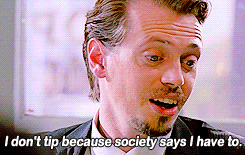
Mirrors was the “options” book for the New World of Darkness with a focus on changing up the rules and setting. It came out in 2010 and was the last nwod book published before Richard Thomas took over and did the “Chronicles of Darkness” rebranding, as well as the shit-show of V5 years later.
The book promises:
I also love how “house rules” is in scare quotes, like it is this strange weird concept the readers wouldn’t be familiar with.• An unholy host of alternate systems for you to option into your characters and games, including (but not limited to!) Morality, Virtue/Vice, Merits, character creation.
• Brand new systems for you to incorporate: social and mental combat, miniatures combat, relationships and Rapport, Conviction, Insanity, and don't forget to check out the Extraordinary Mortals template (with built-in Skill Tricks).
• Three new "what-if setting hacks" for the World of Darkness. The World of Darkness Revealed, wherein the monsters stand exposed for all humanity to see; The World of Darkness Destroyed, which gives you the option of playing out the global apocalypse; and The World of Dark Fantasy, a fantastical spin on the system and setting.
• A handful of essays from the writers and developer of the book, bringing you their own personal "house rules" and hacks for you to consider.
For what it’s worth, I think that the New World of Darkness was a decent idea, at least in some ways. There was a consensus that The World of Darkness needed some kind of reboot, and I completely agreed with the way they went about doing it: modularity. With the exception of the blue core book, every single nwod book was optional, and you could combine the official lines with anything you’d made up yourself in any combination. No more arguments about who really killed Rasputin or if Christianity is the One True Religion or what you are supposed to roll for unarmed combat: just unified mechanics, and the books are suggestions (with some of the “suggestions” being a hell of a lot more developed than others) but the Storyteller has final say on what is or isn’t canon. Done.
Dumping all canon and metaplot was certain to offend a lot of people (because there is no a longer a single definite world of darkness setting anymore), but I think it was the right choice. Tabletop games benefit from creativity and a certain DIY aesthetic that is hard to find anywhere else. Giving more freedom to their customers and keeping their options open just seemed like the obvious smart thing to do from White Wolf’s perspective. At the very least, it would buy them some more time if they couldn’t find a new generation of fans.
And, let’s face it, “The real world but with various horror/fantasy/sci-fi elements” is an incredibly broad and versatile genre. On paper, having a single, unified nwod system to run anything even vaguely like that sounds amazing. You could port Call of Cthulhu or Kult or Unknown Armies. You could do a tabletop version of True Blood or X-Files or John Wick. You could have endless freedom to customize the tone and setting and the assumed power-levels. If you wanted to do a Vampire: The Masquerade game set in the actual historical 1990’s (for extra nostalgia points) you could do that. If you wanted to a crossover between Changeling: The Lost and Netflix’s Money Heist you could do that, and if you wanted to do a straight adaptation of Anne Rice’s Vampire Chronicles you could do that as well. The possibilities were endless.
There were just three problems with the way they did things, in ascending order of importance:
1. A lot of the basic rules were just stupid. Did you know that in the New World of Darkness a normal human can survive 16 days without water? The rules for combat and moral degeneration/sanity were by far the most hated, and for good reason.
2. Word bloat! Too many books that were pointlessly long. Too many cookie-cutter game lines. Too many freelance writers trying to meet the quota by talking in circles and rendering the finished product practically unreadable. Conciseness was seen as bad for some reason, and it drove the company into the fucking ground by publishing too many books no one cared enough to buy.
3. They never tell you that the setting is meant to be modular. By 2004 the World of Darkness had a huge fan base that was invested in more than a decade of continuity. People loved Vampire: The Masquerade. They still do. And nwod just refused to acknowledge the existence of anything owod related for years. Masquerade was the most successful thing White Wolf ever made, and the designers were trying to get away from it as quickly as possible. They plopped down the nwod lines as generically and uniformly as they could, and they expected everyone to just accept them without question. It was an incredibly authoritarian and tone-deaf approach to game design. All the passion and imagination died, and the advantages of any reboot were squandered. Just saying clearly from the beginning “hey, you can still keep running your owod stuff or just change things if you want to” could have made all the difference.
So really, Mirrors should have been the first book that came out, not the last. This thing and the Masquerade conversion guide should have been fully released in 2004, not six years later when the money and fans and goodwill were all long gone. But no, bad management pushes yet another once-profitable company into ruin.

For this book, they actually went over word count, and isn’t that the most damning thing of all? White Wolf asks the writers how they would like to change things and there’s a deafening chorus of suggestions. The incredibly prolific Chuck Wendig worked on this thing as well and he talked about it extensively on his on his old blog (https://web.archive.org/web/20141027083 ... mortem-qa/). They had so much content that two sections were cut and repackaged as stand-alone pdfs (“Shards”), which were released in 2011 to get what little extra money they could:
To head off one question I suspect I’ll get: yes, the mighty Stephen Herron did write a Sci-Fi “Shard” for the book. And yes, I went ahead and cut it out of the book. I had two reasons for doing so. The first and biggest reason is that the book ran way over word count. Bursting at the seams like a microwaved baby hot dog. For example, the space allotted to the Shards section was 60,000 words, and with the Sci-Fi section in, that section’s final draft tallied to a big ol’ 70k. And that was just that one goddamn section. All the areas of the book ran over count. Normally, hey, writers should write to spec — but what, I’m going to complain because everyone delivered a little extra awesome-sauce? (For future record, though: writers, write to spec, or I’ll punch you in your respective gender-specific genital regions. You don’t write to spec and you make Santa cry, you make angels kick babies, and you make me cut word count from other people’s sections. Don’t make me get nut-punchy. Or labia-slappy.)
The second reason was that the Sci-Fi section was a great sampling of lots of awesome ideas, but it ended up a little too scattershot — science fiction being as broad a subject as it is, well, it’s hard to say, “Here’s the entire genre of sci-fi crammed into a World of Darkness can in 15,000 words.” Pretty tough job. And Stephen did it with aplomb — I blame myself for not seeing that problem ahead of time and planning for it in the outline. Stephen’s section was solid, and in a perfect world I could’ve thrown him another 10,000 words (or even 100,000 words) and said, “Hey, keep going with this, because I want to see more, more, more.”
(So, to reiterate — he did his job. I didn’t do mine so well.)
Unfortunately, yeah. Way over word count. Which means I either needed to pick through the little-bitty sections and start clipping (which then creates the worry of, “Can this system stand reliably on three legs instead of four?), or I needed to find a big honking section that could undergo the brutal swipe of the developer’s machete. Hence how the sci-fi section, while good, ended up on the cutting room floor.
I’m going to go over the main book first, then the two shard pdfs, and then the final chapter of mirrors to wrap things up. I’m also going to try and take more of a high-level approach and get to the good/interesting ideas (and there actually are some!) fairly quickly. Partially this is due to personal laziness, but also because nwod books have bad wordcount to useful information ratios (even this one, though it is not even close to being the worst offender) and if you are familiar with game design concepts or just other tabletop RPGs a lot of their suggestions will seem familiar.





